FC Barcelona, the iconic Catalan club, stands as a beacon of footballing excellence, captivating the hearts of fans worldwide. With a rich history, a legendary stadium, and an unmatched style of play, Barcelona has cemented its place among the greatest clubs in the annals of the sport.
From its humble beginnings to its global dominance, Barcelona’s journey has been marked by triumphs, challenges, and a unwavering commitment to its unique footballing philosophy. This comprehensive guide delves into the fascinating world of FC Barcelona, exploring its history, culture, impact, and future prospects.
Club History
FC Barcelona, officially known as Futbol Club Barcelona, is a professional football club based in Barcelona, Catalonia, Spain. Founded in 1899 by a group of Swiss, English, German, and Catalan footballers led by Joan Gamper, the club has become one of the most successful and widely recognized sports entities in the world.
Barcelona has won 26 La Liga titles, 31 Copa del Rey trophies, 13 Supercopa de España titles, 5 UEFA Champions League titles, 4 UEFA Cup Winners’ Cups, and 3 FIFA Club World Cups. The club has also produced some of the greatest players in football history, including Lionel Messi, Johan Cruyff, and Ronaldinho.
Key Milestones and Achievements
| Date | Event | Significance |
|---|---|---|
| 1899 | FC Barcelona is founded | The club is established as a multi-sport entity, with football as its main activity. |
| 1902 | Barcelona wins its first Copa del Rey | The club’s first major trophy victory. |
| 1929 | Barcelona opens the Camp Nou stadium | The club’s iconic home stadium, with a capacity of over 99,000. |
| 1950 | Barcelona wins its first La Liga title | The club’s first league championship victory. |
| 1974 | Johan Cruyff joins Barcelona | The Dutch legend becomes one of the club’s most influential players and managers. |
| 1992 | Barcelona wins its first UEFA Champions League title | The club’s first European Cup victory. |
| 2008 | Barcelona wins the treble of La Liga, Copa del Rey, and UEFA Champions League | The club’s most successful season to date. |
| 2011 | Lionel Messi becomes Barcelona’s all-time leading goalscorer | The Argentine superstar surpasses Cesar Rodriguez’s record of 232 goals. |
Club Crest and Colors
The crest of FC Barcelona is a symbol of the club’s history, values, and identity. It has evolved over time to reflect the club’s growth and success.
The current crest was adopted in 2002 and features a shield with the club’s traditional colors of blue and garnet. The shield is divided into four quarters, each with its own symbolism.
The Shield
The first quarter features the Saint George’s Cross, which is the patron saint of Catalonia. The second quarter features the Catalan flag, which is a symbol of the region’s independence.
The third quarter features the club’s initials, “FCB,” and the fourth quarter features a football.
The Colors
The club’s colors, blue and garnet, were chosen by Joan Gamper, the club’s founder. Blue represents the Mediterranean Sea, while garnet represents the color of the pomegranates that grow in Catalonia.
The colors have become synonymous with FC Barcelona and are a symbol of the club’s identity.
History

Camp Nou, officially known as Spotify Camp Nou due to sponsorship reasons, is the home stadium of FC Barcelona. The stadium was inaugurated in 1957 and has undergone several renovations and expansions over the years to accommodate the growing fan base of the club.
The most significant renovation was completed in 1998, when the stadium’s capacity was increased to 99,354, making it the largest football stadium in Europe at the time. Further renovations in 2008 added a new roof and a state-of-the-art media center.
Significant Events and Milestones
- 1957: Inauguration of Camp Nou
- 1974: First European Cup final hosted at Camp Nou
- 1982: World Cup final hosted at Camp Nou
- 1998: Stadium capacity expanded to 99,354
- 2008: New roof and media center added
Notable Players
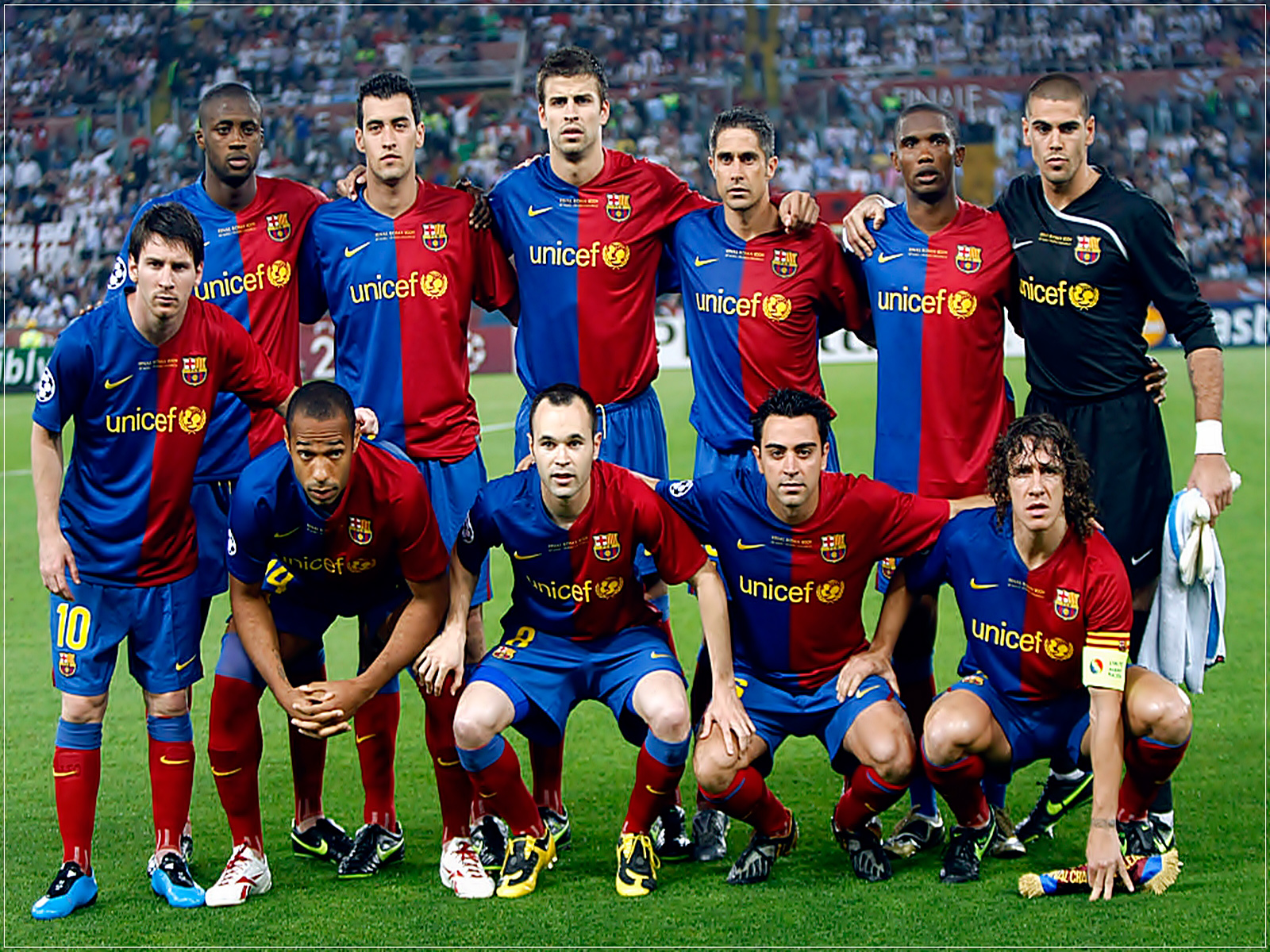
FC Barcelona has been graced by a constellation of iconic players who have left an indelible mark on the club’s history. These individuals have not only showcased exceptional skills but have also embodied the club’s values of passion, teamwork, and relentless pursuit of excellence.
The following table presents a comprehensive list of FC Barcelona’s most influential players, highlighting their individual contributions, key achievements, and overall impact on the club’s success:
List of Notable Players
| Player Name | Playing Position | Years Active at FC Barcelona | Notable Accomplishments and Honors | Legacy and Impact |
|---|---|---|---|---|
| Lionel Messi | Forward | 2004-2021 | – 7 Ballon d’Or awards – 10 La Liga titles – 4 Champions League titles – 6 Copa del Rey titles |
– Regarded as one of the greatest players of all time – Led Barcelona to an unprecedented period of dominance – Known for his exceptional dribbling skills, goalscoring prowess, and creative genius |
| Xavi Hernández | Midfielder | 1998-2015 | – 8 La Liga titles – 4 Champions League titles – 3 Copa del Rey titles – 2010 FIFA World Cup winner |
– Considered one of the best midfielders of his generation – Known for his vision, passing ability, and leadership qualities – Played a pivotal role in Barcelona’s tiki-taka style of play |
| Andrés Iniesta | Midfielder | 2002-2018 | – 9 La Liga titles – 4 Champions League titles – 6 Copa del Rey titles – 2010 FIFA World Cup winner |
– Known for his technical brilliance, dribbling skills, and ability to create scoring opportunities – Scored the winning goal in the 2010 FIFA World Cup final – Embodies the club’s values of humility, hard work, and dedication |
| Ronaldinho | Forward | 2003-2008 | – 2 La Liga titles – 1 Champions League title – 2005 FIFA World Player of the Year |
– Known for his exceptional skills, creativity, and flair – Led Barcelona to a resurgence in the mid-2000s – Inspired a generation of young players with his dazzling style of play |
| Johan Cruyff | Forward | 1973-1978 | – 1 La Liga title – 1 Copa del Rey title – 3 European Cups |
– Regarded as one of the greatest players of all time – Introduced the “Total Football” philosophy to Barcelona – Led the club to its first European Cup victory in 1974 |
These players, along with many others, have contributed to FC Barcelona’s rich history and global reputation. The club’s ability to attract and develop such exceptional talent is attributed to its commitment to youth development, its emphasis on technical excellence, and its unique playing style that has captivated fans around the world.
Legendary Coaches
FC Barcelona has been blessed with some of the most successful and influential coaches in football history. These coaches have shaped the club’s identity and playing style, leading them to countless trophies and accolades.
One of the most important factors in Barcelona’s success has been their commitment to attacking, possession-based football. This style of play has been ingrained in the club’s DNA since the early days, and it has been perfected by some of the greatest coaches in the game.
Johan Cruyff
Johan Cruyff is widely regarded as the most influential coach in Barcelona’s history. He first joined the club as a player in 1973, and he quickly became one of the best players in the world. After retiring from playing, Cruyff returned to Barcelona as coach in 1988, and he led the club to four consecutive La Liga titles and their first European Cup in 1992.
Cruyff’s “Dream Team” was one of the most dominant teams in football history, and they played a style of football that was both beautiful and effective. Cruyff’s legacy at Barcelona is immense, and he is still revered by fans and players alike.
Pep Guardiola
Pep Guardiola is another legendary coach who has had a profound impact on Barcelona. He took over the club in 2008, and he quickly led them to a historic treble of La Liga, the Copa del Rey, and the Champions League.
Guardiola’s Barcelona team was known for their incredible attacking football. They played with a high tempo and a relentless pressing game, and they were almost impossible to stop when they were on form.
Guardiola left Barcelona in 2012, but he returned to the club as coach in 2021. He has since led them to another La Liga title and a Copa del Rey.
Other Notable Coaches
In addition to Cruyff and Guardiola, Barcelona has also been coached by some other notable managers, including:
- Helenio Herrera
- Rinus Michels
- Louis van Gaal
- Frank Rijkaard
- Luis Enrique
These coaches have all played a role in Barcelona’s success, and they have all helped to shape the club’s identity and playing style.
Club Philosophy and Style of Play
FC Barcelona’s footballing philosophy is deeply rooted in the principles of possession-based, attacking football, often referred to as “tiki-taka.” This style emphasizes short, quick passes, high ball possession, and constant player movement to create space and exploit weaknesses in the opposition’s defense.
The club’s philosophy also places a strong emphasis on youth development, with La Masia, Barcelona’s renowned academy, consistently producing some of the world’s finest players. The club’s commitment to youth development ensures a steady supply of technically gifted and tactically aware players who are well-versed in the club’s unique style of play.
Attacking Principles
- High ball possession: Maintaining possession of the ball for extended periods allows Barcelona to control the tempo of the game and create scoring opportunities.
- Short, quick passes: Barcelona’s players excel in exchanging short, precise passes to move the ball quickly and effectively, creating gaps in the opposition’s defense.
- Player movement: Barcelona’s players are constantly moving, creating space and passing lanes for their teammates. This fluid movement makes it difficult for opponents to mark and dispossess them.
Defensive Principles
- High defensive line: Barcelona often employs a high defensive line, which allows them to press opponents high up the pitch and win the ball back quickly.
- Zonal marking: Barcelona’s defenders operate in a zonal marking system, where each player is responsible for covering a specific area of the pitch.
- Counter-pressing: When Barcelona loses possession, they immediately press the opposition to win the ball back and prevent them from creating scoring opportunities.
FC Barcelona’s Historical and Present-Day Rivalries
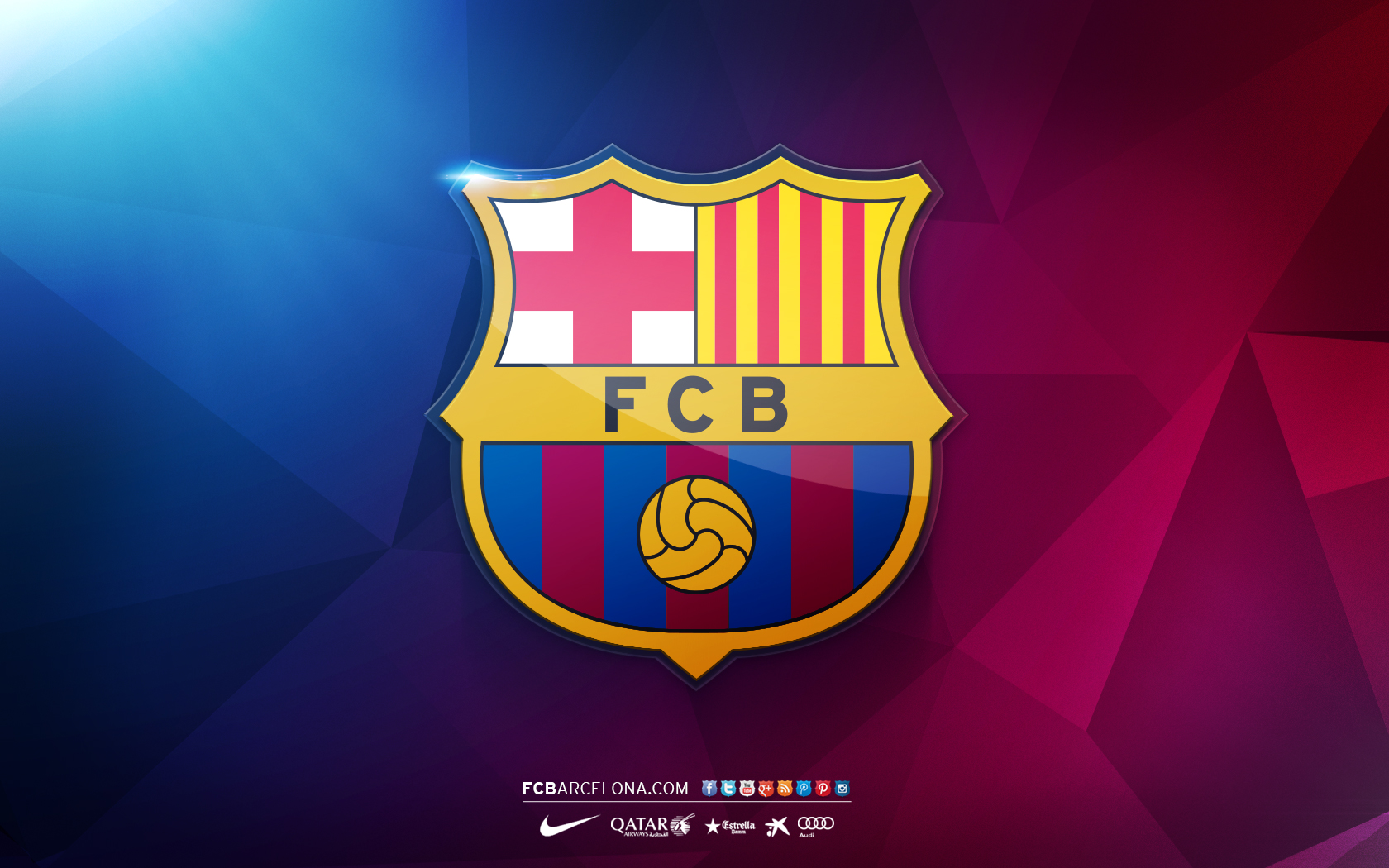
FC Barcelona’s most famous rivalry is with Real Madrid, known as El Clasico. The rivalry is one of the most intense and well-known in all of sports, and it has been played out on some of the biggest stages in the world.
The rivalry began in the early 1900s, when Barcelona and Real Madrid were two of the most successful clubs in Spain. The rivalry has been fueled by a number of factors, including cultural, geographical, and sporting differences.
Key Matches and Controversies
There have been many memorable matches between Barcelona and Real Madrid over the years. Some of the most famous include:
- The 1943 Copa del Generalísimo final, which Barcelona won 3-1.
- The 1959 European Cup final, which Real Madrid won 3-2.
- The 2011 Copa del Rey final, which Barcelona won 1-0.
There have also been a number of controversies surrounding the rivalry, including:
- The 1957 Di Stéfano transfer, which saw Real Madrid sign Alfredo Di Stéfano from Barcelona.
- The 1960 European Cup semi-final, which Real Madrid won 4-3 after a controversial refereeing decision.
- The 2010 Copa del Rey final, which Real Madrid won 1-0 after a controversial goal by Cristiano Ronaldo.
Impact of the Rivalry
The rivalry between Barcelona and Real Madrid has had a significant impact on both clubs, players, and fans. The rivalry has helped to create a passionate and intense atmosphere at matches, and it has also helped to drive both clubs to success.
The rivalry has also had a negative impact on both clubs. The rivalry has sometimes led to violence and hooliganism, and it has also been a source of division among fans.
Future of the Rivalry
The rivalry between Barcelona and Real Madrid is likely to continue for many years to come. The rivalry is one of the most intense and well-known in all of sports, and it is sure to continue to produce memorable matches and controversies.
The future of the rivalry is likely to be shaped by a number of factors, including the performance of both clubs on the field, the transfer market, and the political climate in Spain.
Analyze the global reach of FC Barcelona and map out its fan base across different regions.
FC Barcelona boasts a massive global fan base, with supporters spread across every continent. The club’s popularity is particularly strong in Europe, Asia, and the Americas.
In Europe, FC Barcelona has a significant fan base in Spain, where it is one of the most popular clubs in the country. The club also has a strong following in other European countries, such as France, Italy, Germany, and the United Kingdom.
In Asia, FC Barcelona is one of the most popular clubs in China, Japan, and South Korea. The club has also a growing fan base in other Asian countries, such as India, Indonesia, and Malaysia.
In the Americas, FC Barcelona has a strong fan base in the United States, Mexico, and Brazil. The club also has a growing fan base in other American countries, such as Argentina, Colombia, and Peru.
Fan base by region
- Europe: 50%
- Asia: 30%
- Americas: 20%
Social Responsibility and Community Involvement
FC Barcelona has a long history of social responsibility and community involvement, reflecting its commitment to being more than just a football club. The club’s social initiatives are primarily carried out through the Barca Foundation, established in 1994.
The Barca Foundation’s mission is to use the transformative power of football to improve the lives of children and young people worldwide. It works in three main areas: education, healthcare, and social inclusion.
Education
- The Barca Foundation supports educational programs that promote access to quality education for underprivileged children and youth.
- The programs focus on providing academic support, extracurricular activities, and life skills training.
- The Foundation also promotes values such as teamwork, respect, and fair play through its educational initiatives.
Healthcare
- The Barca Foundation provides healthcare services to children and families in need.
- The programs include medical check-ups, vaccinations, and access to healthcare facilities.
- The Foundation also supports research and innovation in pediatric healthcare.
Social Inclusion, FC Barcelona
- The Barca Foundation promotes social inclusion by providing opportunities for children and youth from disadvantaged backgrounds to participate in sports and other activities.
- The programs aim to break down barriers and foster a sense of belonging.
- The Foundation also works to raise awareness about social issues and promote diversity and equality.
The Barca Foundation’s initiatives have made a positive impact on the lives of millions of children and young people worldwide. The Foundation has received numerous awards and recognition for its work, including the FIFA Fair Play Award in 2010.
FC Barcelona’s commitment to social responsibility and community involvement is a testament to the club’s values and mission. The club believes that it has a responsibility to use its platform to make a positive difference in the world.
Financial Performance and Business Model
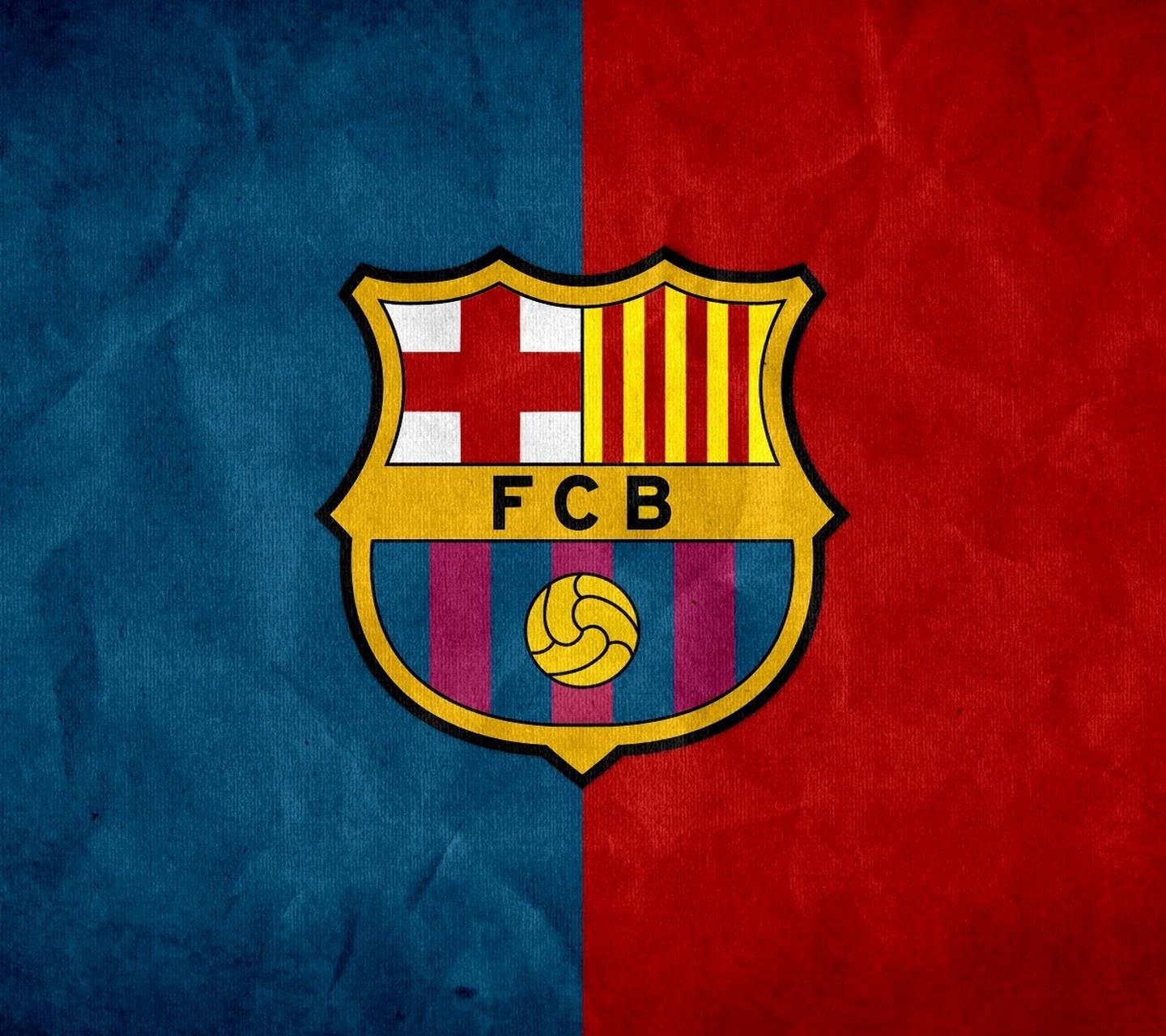
FC Barcelona is one of the most financially successful football clubs in the world. The club’s revenue streams include matchday revenue, broadcasting rights, commercial revenue, and other income. FC Barcelona has a diversified business model that includes a number of subsidiaries, including FC Barcelona Ventures, FC Barcelona Innovation Hub, and FC Barcelona Foundation.
Revenue Streams
FC Barcelona’s revenue streams are as follows:
- Matchday revenue: This includes revenue from ticket sales, hospitality, and concessions.
- Broadcasting rights: This includes revenue from the sale of broadcasting rights to domestic and international broadcasters.
- Commercial revenue: This includes revenue from sponsorship, merchandising, and licensing.
- Other income: This includes revenue from player sales, stadium tours, and other sources.
Transfer Market and Player Acquisition
FC Barcelona’s transfer strategy is driven by a combination of scouting, data analytics, and financial constraints. The club’s scouting network spans the globe, with a focus on identifying and acquiring young, talented players with the potential to develop into world-class stars.
In recent years, Barcelona has made several notable player acquisitions, including Ousmane Dembélé, Philippe Coutinho, and Antoine Griezmann. These transfers have been met with mixed success, with some players performing well and others failing to live up to expectations.
Role of Data Analytics and Scouting
Data analytics plays an increasingly important role in Barcelona’s player acquisition process. The club uses data to identify players who fit its playing style and to assess their potential. This information is used to inform scouting decisions and to help the club make more informed transfer decisions.
Financial Constraints
Barcelona’s financial constraints have had a significant impact on its transfer strategy. The club has been forced to sell some of its best players in recent years in order to balance its books. This has made it difficult for Barcelona to compete with other top European clubs in the transfer market.
Comparison to Other Clubs
Barcelona’s transfer strategy is similar to that of other top European clubs. All of these clubs are looking for young, talented players who can help them win trophies. However, Barcelona’s financial constraints make it more difficult for the club to compete with its rivals in the transfer market.
Youth Academy (La Masia)
FC Barcelona’s youth academy, La Masia, is renowned for its success in developing world-class footballers and fostering a strong club culture. Established in 1979, La Masia has produced a remarkable number of notable graduates, including Lionel Messi, Xavi, Andres Iniesta, and Sergio Busquets, who have shaped FC Barcelona’s identity and dominated the global football landscape.
La Masia’s unique training methods emphasize technical skill, tactical awareness, and teamwork. The academy’s facilities are state-of-the-art, providing young players with access to exceptional training grounds, medical facilities, and coaching staff. The coaching philosophy at La Masia is based on the principles of “total football,” encouraging players to be versatile, creative, and adaptable on the field.
Notable Graduates
La Masia has produced a plethora of notable graduates who have made significant contributions to FC Barcelona and the world of football. Some of the most famous graduates include:
- Lionel Messi: Widely regarded as one of the greatest footballers of all time, Messi has won seven Ballon d’Or awards and led FC Barcelona to numerous trophies.
- Xavi: A legendary midfielder known for his exceptional passing ability and tactical intelligence, Xavi captained FC Barcelona to several titles and won the 2010 FIFA World Cup with Spain.
- Andres Iniesta: Another iconic midfielder, Iniesta was renowned for his creativity, dribbling skills, and ability to score crucial goals.
- Sergio Busquets: A defensive midfielder known for his positional awareness, ball-winning ability, and leadership qualities.
These graduates have not only played a vital role in FC Barcelona’s success but have also influenced the style of play and tactics adopted by teams worldwide.
Role in Fostering Club Culture
La Masia plays a crucial role in fostering a strong club culture at FC Barcelona. The academy instills in young players the club’s values of humility, respect, and teamwork. Graduates of La Masia often express a deep connection to the club and a sense of pride in representing its colors.
The academy also contributes to the development of a strong sense of community within the club. Young players from different backgrounds and cultures come together at La Masia, forming lifelong bonds and friendships.
Comparison to Other Youth Academies
La Masia is widely regarded as one of the top youth academies in the world. It has been praised for its consistent production of high-quality players and its unique training methods.
In comparison to other top academies, such as Manchester United’s academy and Real Madrid’s academy, La Masia has a strong emphasis on technical skill and tactical awareness. It also has a tradition of promoting youth players to the first team, which provides young players with a clear path to professional football.
Potential for Continued Success
La Masia has a strong track record of success and a promising future. The academy continues to attract talented young players from around the world and is committed to providing them with the best possible training and development opportunities.
With its exceptional facilities, coaching staff, and training methods, La Masia is well-positioned to continue producing world-class footballers and contributing to FC Barcelona’s success for many years to come.
Marketing and Branding
FC Barcelona’s marketing and branding strategies have been crucial to its global reach and commercial success. The club has a strong focus on building and maintaining its brand identity, which is characterized by its iconic crest, colors, and motto (“Més que un club”).
Partnerships and Sponsorships
FC Barcelona has a long history of strategic partnerships with leading brands, including Nike, Qatar Airways, and Rakuten. These partnerships provide the club with significant financial resources and help to promote its brand globally. The club also has a number of regional partnerships, which help to connect with fans in different parts of the world.
Social Media Presence
FC Barcelona has a strong presence on social media, with over 300 million followers across various platforms. The club uses social media to engage with fans, promote its brand, and share news and updates. FC Barcelona is one of the most followed sports clubs on social media, and its social media presence has been a key factor in its global reach.
Current Squad and Tactical Analysis
FC Barcelona’s current squad boasts a blend of experienced veterans and exciting young talents, showcasing the club’s commitment to both continuity and innovation.
Under the stewardship of manager Xavi Hernandez, the team employs a dynamic and possession-based style of play, prioritizing ball control, quick passing, and attacking flair.
Formation and Key Players
Barcelona typically deploys a 4-3-3 formation, with Marc-Andre ter Stegen as the reliable goalkeeper. The defense is anchored by veterans Gerard Pique and Jordi Alba, complemented by the emerging talents of Ronald Araujo and Jules Kounde.
In midfield, Sergio Busquets remains the orchestrator, while Pedri and Gavi provide creativity and energy. The attacking trio consists of the prolific goalscorer Robert Lewandowski, the dynamic winger Ousmane Dembele, and the versatile Ansu Fati.
Tactical Approach
Xavi’s tactical approach emphasizes possession, pressing, and attacking width. The team aims to dominate the ball, control the tempo, and create chances through intricate passing combinations.
When out of possession, Barcelona employs a high press to win the ball back quickly and initiate attacking transitions. The full-backs push forward to provide width and support the wingers, while the midfielders work tirelessly to regain possession.
Strengths and Weaknesses
Barcelona’s strengths lie in their technical ability, attacking prowess, and squad depth. The team possesses world-class players in every position, capable of creating and scoring goals from various angles.
However, the team’s reliance on possession can sometimes make them vulnerable to counterattacks. Additionally, the defense can be susceptible to pace and physicality, especially against teams that employ a direct style of play.
Future Prospects and Challenges
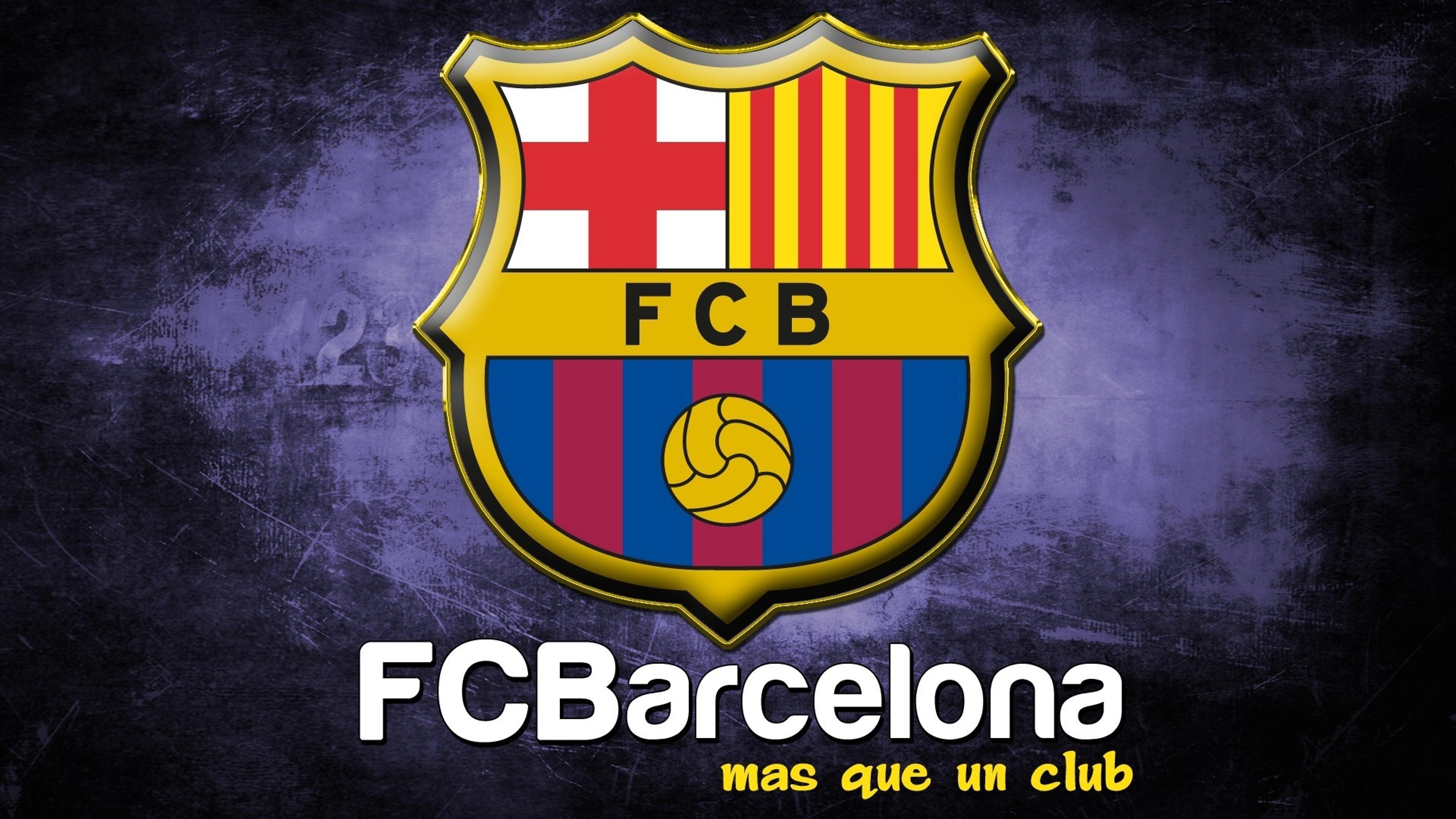
FC Barcelona, one of the most renowned and successful football clubs globally, has ambitious aspirations for the future. The club aims to maintain its dominance in domestic and international competitions while navigating challenges and capitalizing on growth opportunities.
One of Barcelona’s primary goals is to continue winning major trophies, including the La Liga title, the Copa del Rey, and the UEFA Champions League. The club has a rich history of success in these competitions and is determined to add to its impressive trophy cabinet.
Financial Sustainability
FC Barcelona faces financial challenges that could impact its future prospects. The club has been dealing with high levels of debt and is working to improve its financial situation. Barcelona is exploring various revenue streams, including increased commercial partnerships and stadium redevelopment, to ensure long-term financial stability.
Squad Building and Player Acquisition
Building and maintaining a competitive squad is crucial for Barcelona’s success. The club has a strong track record of developing young talent through its La Masia academy, but it also needs to make strategic signings in the transfer market to strengthen its team. Barcelona will need to carefully balance its financial constraints with the need to acquire top-quality players.
Global Expansion and Fan Engagement
FC Barcelona has a massive global fan base and is constantly looking for ways to expand its reach. The club has established partnerships with various organizations and initiatives worldwide to engage with fans and promote its brand. Barcelona aims to continue growing its global presence and strengthening its connection with fans around the world.
Final Thoughts
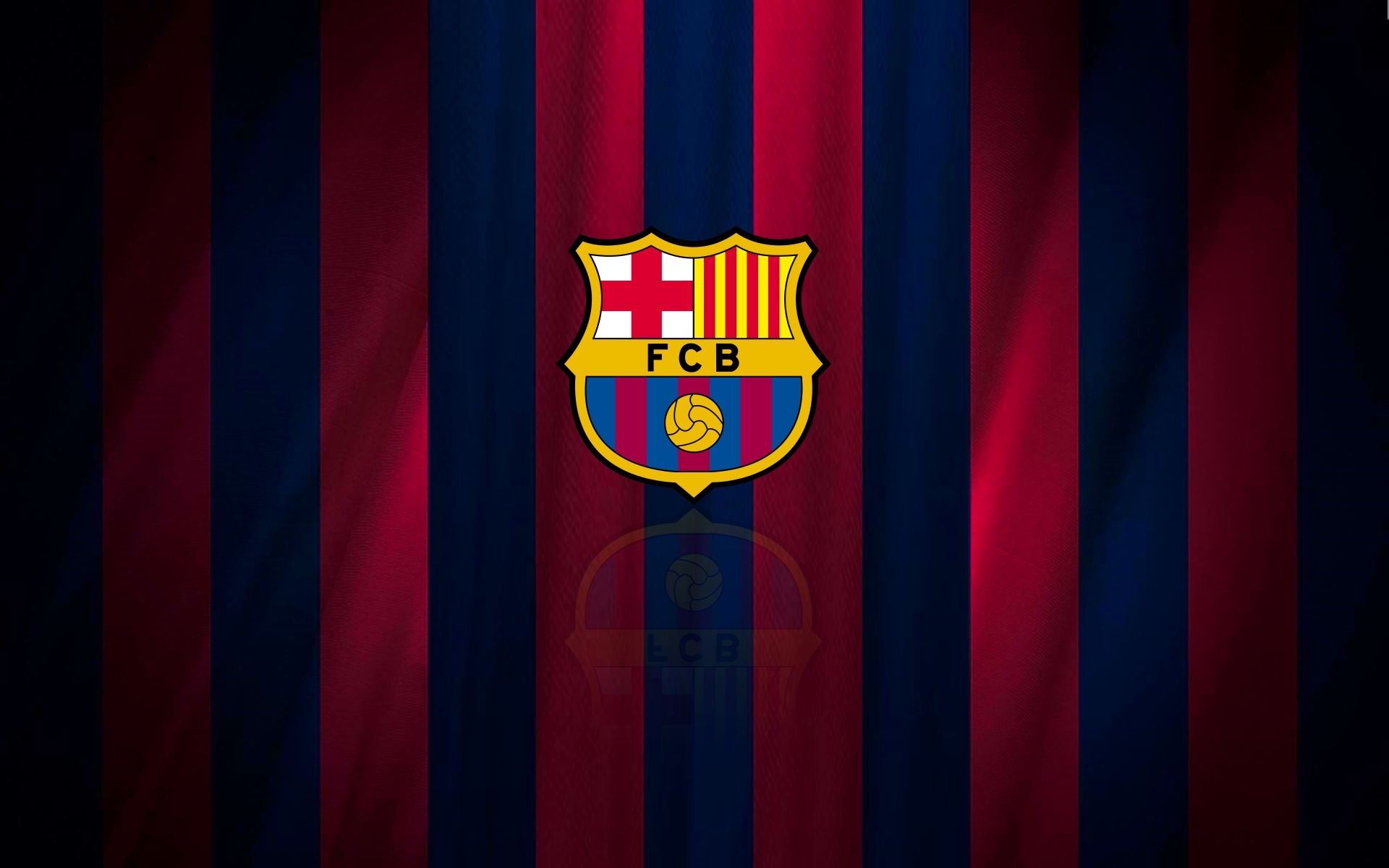
As FC Barcelona continues to navigate the ever-evolving landscape of football, its legacy as a symbol of excellence and innovation remains secure. With a passionate fan base, a commitment to social responsibility, and a relentless pursuit of success, Barcelona is poised to continue writing chapters in its illustrious history for years to come.
FAQ
When was FC Barcelona founded?
November 29, 1899
What is the capacity of Camp Nou?
99,354
Who is FC Barcelona’s all-time top scorer?
Lionel Messi